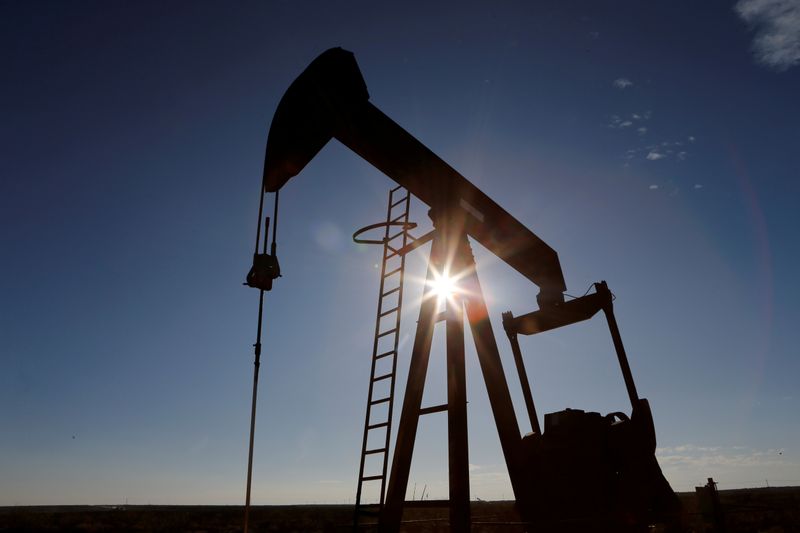By Sonali Paul and Roslan Khasawneh
MELBOURNE/SINGAPORE (Reuters) - Oil prices fell around 1% on Thursday as a spike in new coronavirus cases in China and the United States renewed fears that a recovery in fuel demand could stall, even as lockdowns ease.
Brent crude (LCOc1) futures fell 0.9%, or 37 cents, to $40.34 a barrel at 0423 GMT, having fallen 25 cents in the previous session.
U.S. West Texas Intermediate (WTI) crude (CLc1) futures dropped 1.4%, or 52 cents, to $37.44 a barrel, adding to a loss of 42 cents on Wednesday.
"The market continues to balance re-opening optimism with unknowns around the economic uncertainties from a secondary outbreak of the virus," said Stephen Innes, market strategist at AxiTrader.
Worries about fuel demand rose after a surge in coronavirus cases led Beijing to cancel flights and shut schools and several U.S. states, including Texas, Florida and California, reported sharp increases in new cases.
A rise in U.S. crude stockpiles to a record high for a second week in a row also weighed on sentiment, even though U.S. government data showed inventories of gasoline and distillate, which include diesel and heating oil, fell.
"People are concerned about the coronavirus resurging in China and crude stockpiles rising," said Lachlan Shaw, head of commodity research at National Australia Bank (OTC:NABZY).
While prices dipped, they are likely to remain in the $35 to $40 band they have been trading in so far in June, with the Organization of the Petroleum Exporting Countries and its allies, a grouping called OPEC+, mostly sticking to promised supply cuts, U.S. shale producers holding back output, and fuel demand gradually improving, analysts said.
OPEC+ compliance with crude production cut commitments in May was 87%, two OPEC+ sources said on Wednesday.
However, OPEC warned in a monthly report the market would remain in surplus in the second half of 2020 even as demand improves, as it now expects supply from outside the group to be about 300,000 barrels per day higher than earlier thought.

"OPEC's dour assessment" added to negative sentiment, ANZ said in a note.